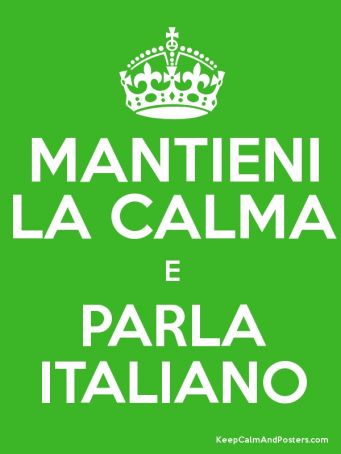False friends, superabundant nouns and other confusables.
Martin Bennett
Sbagliando si impara, goes a wonderfully forgiving Italian proverb, tailor-made for non-native learners. Or, in blunter English: “You learn from your mistakes.” Here, then, are charted some of the pitfalls awaiting even the best-willed student.
To start with one autobiographical example: “Indossa le tue stoviglie, tesoro,” I once blurted to my Sardinian partner in a fit of hasty expectation. With its tender array of vowels expressing affection in Italian, tesoro / treasure was perfect; the problem was with those stoviglie. The word in question means not boots or stivali as I’d intended, but crockery. Mrs Malaprop herself would have been chuckling in her grave. To quote Iris Murdoch: “Nothing humbles human pride more than the inability to understand (or, in this case, speak) a language.” Needless to say, it’s a mistake I’ve not repeated, except to raise a self-deprecating laugh.
Confusion can be mostly phonetic. At sea, to prevent possible mis-sightings, be aware that anchor is àncora not ancòra / again. Mid-ocean, albero more likely denotes a mast than a tree. By the same token – regarding confusions due to gender – mariners ancient or modern should heed that a sail is una vela, not un velo / veil as in those of Salomé’s dance.
Again on the travel front, in train stations don't be fooled by BINARIO. Despite the capitals, this is not a destination as a friend once insisted, thinking we had boarded the wrong express. There are over 20 of them in Termini station; the word simply means platform. Again even that espresso could cost you dear, meaning as often as not a train that stops at every station.
Italian is generally easier to pronounce than English. While English has 12 vowel sounds, Italian has six. Not that there are not pitfalls here also. Pesca could be peach / pèsca or fishing / pésca depending on its accent. If, as an African proverb holds, “a word can ruin a kingdom”, even a letter can cause embarrassment. Think of those infamous minimal pairs that plague Italian students: sheet / sh_t, beach / b_tch. Weak-throated English speakers have more problems with Italian consonants, particularly r. In a trattoria, after ordering a dog / cane rather than meat / carne, I embarked on a year’s practicing, off and on, of a manically Glaswegian rendition of “Round the ragged rock the ragged rascal ran.” The necessary phonetic rough edge once acquired, I’ve been spared more misunderstandings, at least in front of waiters.
The ubiquitous gli as in the masculine plural definite article before vowels and types of ‘s’ or ‘z’ or ‘x’ is another bugbear. Practice by placing tongue against palate, then part gulp, part gargle upward.
From pronunciation to lexis, next up are superabundant nouns, more easily explained if thought of as hermaphrodites, at least in part. Uovo (masculine singular for egg) metamorphoses to uova (feminine) in the plural. More common, though, are semi-hermaphroditic nouns. Braccio / arm remains masculine in the plural bracci / arms in an abstract sense, but becomes feminine (braccia) when the arms belong to the human body. Likewise ciglio / brow is masculine in the topographical sense (cf. Madame Butterfly waiting for Pinkerton: Mi metto là / sul ciglio del colle e aspetto… / No, I shall stand there on the brow of the hill and wait…), but takes the feminine plural ciglia when denoting eyelashes; labbro / lip - labbra / lips and even grido / cry - grida / cries follow the same pattern.
False friends – words leaving Italian or Latin with one meaning only to arrive in English with another – are another minefield. Thus delusione is not delusion as in “The Man who Mistook his Wife for a Hat”, but disappointment; and noia – as in Moravia’s novel – signifies boredom not annoyance (but Che noia! means What a pain!), to mention two well-known examples. Such false friendship also works vice versa: in tilt, once arrived into Italian, has nothing to do with incline but means blocked – by strikes or floods as in La città va in tilt, that all too frequent headline.
To return to travel, lest arriving visa-less at customs you’re interpreted as being blind, visto is visa not sight / vista. In an airport, don't panic at the recurring word cancello; it's a gate, not a cancellation.
When seeking directions, beware of bookshop / libreria and library / biblioteca; galleria could as likely be a tunnel as an art gallery, while galera means prison. Similarly, cava is quarry and cantina cellar; fattoria is a farm not a factory, which is una fabbrica.
Other mistaken destinations could be casino, which is a brothel not a casino / casinò. Or, in another meaning, Hanno fatto un casino / They messed up. Svezia is Sweden, Svizzera Switzerland, Anversa Antwerp, Monaco Munich, as well as the small Côte d’Azur country. More puzzlingly, Bastardo in Umbria is not be an insult but a village and bastardi any one of its 1,549 inhabitants as they proudly call themselves.
Sometimes confusables can work in one's favour. Years ago, while living in the Middle East, I'd booked a stay in Venice, settling for a reasonably priced B&B. Or thus the agent assured me. On arrival at Hotel Danieli, as written on the voucher, I was pleasantly surprised to be greeted like visiting royalty. Room flowers, newspapers in three languages, bedding changed twice a day, chandeliers in the corridors, then champagne for breakfast. Not until I arrived back in the Middle East did I realise what had happened. The poor agent, head in hands, announced he'd mistaken the name: I should have stayed in the humbler Albergo Danilo, or some similar-sounding name, for a fraction of the cost.
False friends (one of the best dictionaries is Virginia Browne’s “Odd Pairs and False Friends”, Zanichelli 1987) can also lead to misidentifications of people: Un tassista abusivo is a taxi driver without a license rather than one who insults you; inquilini abusivi are not rude tenants but squatters; poliziotto in borghese denotes plainclothes not class; procuratore is a highly respectable public prosecutor not a pimp; ruffiano is rather worse than our ruffian; editore is a publisher not an editor; contribuente is a taxpayer, collaboratore is simply a contributor (or freelance), no opprobrium attached.
Proving Dr Johnson’s “To use two languages familiarly, and without contaminating one by the other, is very difficult; and to use more than two, is hardly to be hoped,” confusable objects include batteria / drums, etichetta / label, marmellata / jam not marmalade, vocabolario / dictionary, argomento / subject. (For argument use litigio or battibecco). Tricky adjectives are tremenda / terrible not tremendous, geniale / brilliant not genial, simpatico / likeable not sympathetic, educato / polite not educated. Accordingly, someone who is maleducato is more boor than dunce; lunatico is moody not mad.
Useful to know when booking a posh limousine or hotel: lussurioso is lustful not luxurious, which is lussuoso or di lusso. E’ difficile can express unlikelihood not difficulty. Beware also of impressionante; unless accompanied by favorevolmente, it can mean shocking or horrifying, as I learned too late when trying to compliment my ex-landlady on her hospitality. Casuale has more to do with chance than casualness.
False friends, although a better definition might be alternative versions of the truth. To put it proverbially, “A man / woman who speaks two languages is worth two men / women. With every new language you acquire a new soul.”























